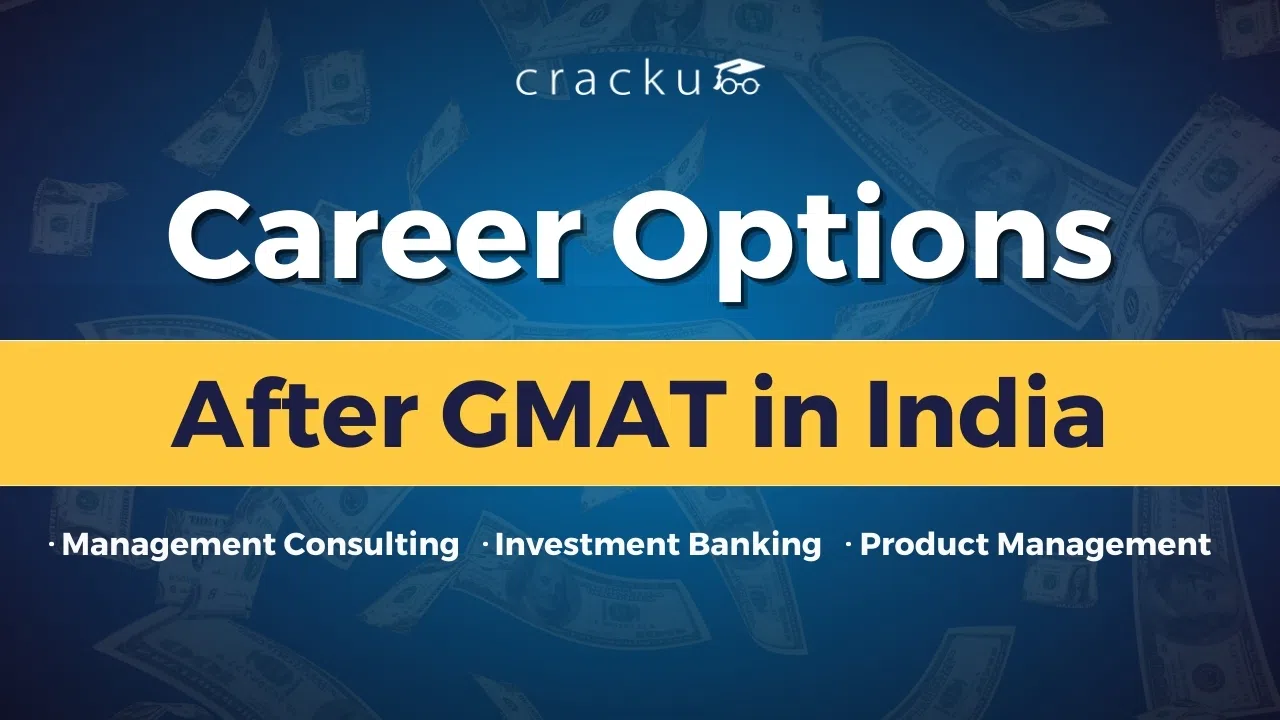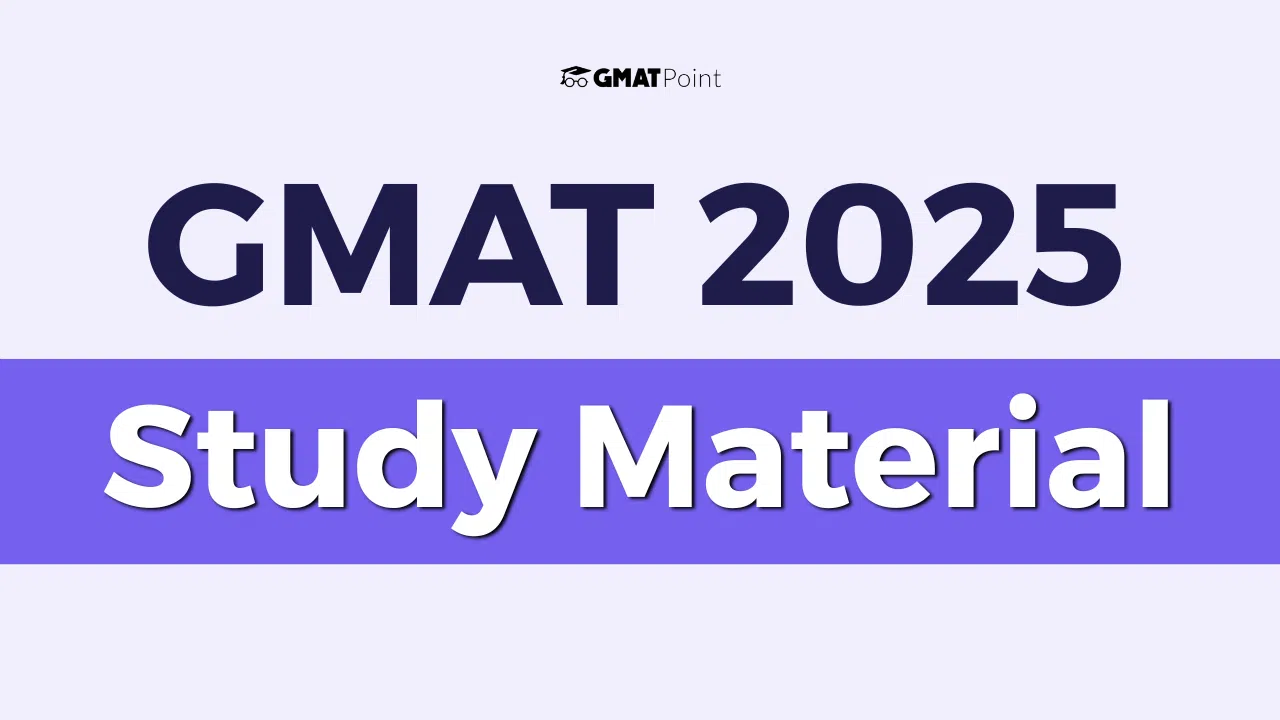Top Career Options After GMAT, if analysed accurately, can help you secure some of the highest paying jobs in India. The GMAT, a globally recognized management aptitude test, opens doors to prestigious MBA programs worldwide. But what about after that coveted MBA? For students in India, a GMAT score unlocks a diverse spectrum of career options after GMAT.
In this blog we will present some of the most promising career options after GMAT in India 2025. We will also have a look at various non-management opportunities after GMAT.
MBA Careers After GMAT
Certain career paths consistently rank high in terms of skills and salary potential for MBA graduates in India. These "classic" options leverage your strong business knowledge:
- Management Consulting: Consulting firms advise businesses on strategy, operations, and technology. An MBA equips you with the analytical and problem-solving skills needed to move forward in this dynamic field.
- Investment Banking: Investment banks help companies raise capital and manage investments. An MBA combined with your GMAT score positions you well for a career in this fast-paced and profitable industry.
- Product Management: Product managers lead the development and launch of new products. An MBA hones your skills in market research, product development, and go-to-market strategies, making you a valuable asset for product-driven companies.
Table 1: High-Demand MBA Careers After GMAT in India
| Career Path | Key Skills Developed | Business Leaders |
|---|---|---|
| Management Consulting | Analytical thinking, Problem-solving, Communication | McKinsey & Company, Bain & Company, Boston Consulting Group |
| Investment Banking | Financial analysis, Valuation, Deal structuring | Goldman Sachs, JP Morgan Chase, Morgan Stanley |
| Product Management | Market research, Product development, Go-to-market strategies | Amazon, Flipkart, HUL |
Also Check GMAT Focus Edition Syllabus 2025, Section-Wise Syllabus PDF
High Paying Career Opportunities After GMAT in India
Below are some of the highest-paying job opportunities that students can take up after the GMAT in India.
| Designation | Average Annual Salary Per Annum |
| Finance | INR 15-30 lakh |
| International Business | INR 17-25 lakh |
| Marketing | INR 20-30 lakh |
| Information Technology | INR 15-25 lakh |
Post GMAT Career Options Shaping the Future
The business landscape is constantly evolving, and new opportunities are emerging for MBA graduates:
- Business Analytics: Data-driven decision making is crucial for modern businesses. An MBA, coupled with strong analytical skills, equips you for careers in business intelligence and data science, where you can translate data into action.
- FinTech: The convergence of finance and technology is creating exciting opportunities. An MBA combined with your GMAT score lands you well for careers in digital payments, blockchain technology, and wealth management platforms.
- Entrepreneurship: Do you dream of building your own venture? An MBA equips you with the business knowledge and leadership skills needed to develop a business plan, secure funding, and manage a startup.
Table 2: Emerging Career Options for MBA Graduates
| Career Path | Key Skills Developed | Top Employers |
|---|---|---|
| Business Analytics | Data analysis, Visualization, Machine learning | TCS Analytics, Mu Sigma, Fractal Analytics |
| FinTech | Financial knowledge, Technology expertise | Paytm, PhonePe, Razorpay |
| Entrepreneurship | Business plan development, Funding acquisition, Startup management | Explore various startup opportunities or launch your own venture |
Also Check Free GMAT Practice Tests
Industry-Specific Opportunities After GMAT
For a focused career path, consider specialising in a particular industry:
- Healthcare Management: An MBA in healthcare management fills you with the skills to navigate the complexities of the healthcare sector, opening doors to careers in hospital administration, healthcare consulting, and pharmaceutical marketing.
- Marketing Management: An MBA in marketing management improves your skills in brand management, consumer behaviour analysis, and digital marketing strategies, preparing you for careers in marketing research, advertising, and brand management roles within specific industries like FMCG or automobiles.
- Information Technology (IT) Management: An MBA in IT management equips you with the skills to manage IT operations, develop IT strategies, and lead IT teams within various industries.
Table 3: Industry-Specific MBA Specialization Options
| Industry | Specialization | Career Options |
|---|---|---|
| Healthcare | Healthcare Management | Hospital administrator, Healthcare consultant, Pharmaceutical marketing manager |
| Marketing | Marketing Management | Advertising manager, Marketing research analyst, Brand manager |
| Information Technology (IT) | IT Management | IT project manager, IT consultant, CIO (Chief Information Officer) |
Remember: Industry-specific MBAs cater to your passion for a particular sector and can lead to fulfilling careers within that domain.
Also Check Free GMAT Daily Targets
Non-Management Career Options Post-GMAT
While an MBA often leads to management roles, your GMAT scoreand the skills it assesses can be valuable assets in non-traditional career paths as well:
- Quantitative Analyst: Quantitative analysts use complex mathematical models to analyse financial risks and market trends. An MBA, particularly with a strong focus on quantitative subjects, combined with your GMAT score, demonstrates your analytical prowess and positions you well for a career in this quantitative field.
- Marketing Research Analyst: Marketing research analysts conduct market research to understand consumer behaviour and inform marketing strategies. An MBA enhance your research skills, data analysis capabilities, and understanding of consumer behaviour, making you a valuable asset for market research teams.
- Business Development: Business development professionals identify and pursue new business opportunities. An MBA equips you with the skills to negotiate deals, build relationships, and develop strategic partnerships, making you a complete fit for a career in business development.
Table 3: Non-Traditional Career Options for MBA Graduates
| Career Path | Key Skills Developed | Employers |
|---|---|---|
| Quantitative Analyst | Mathematical modeling, Risk assessment, Financial analysis | Investment banks, Hedge funds, Risk management consultancies |
| Marketing Research Analyst | Market research, Data analysis, Consumer behavior | Market research firms, Advertising agencies, FMCG companies |
| Business Development | Deal negotiation, Relationship building, Strategic partnerships | Startups, Established companies across various industries |
Note: The career options after GMAT in India are vast and ever-evolving. This blog highlights some of the most popular and promising choices.
Also Check GMAT Practice Questions
Conclusion
Acing the GMAT is just the beginning of your exciting journey. Your GMAT score unlocks many doors of career options, as explored in this blog - both management and non-management roles. Whether you think of yourself as a high-powered consultant or a data-driven business analyst, an MBA provides you with the skills and knowledge to thrive.
GMATpoint by Cracku can be your trusted partner throughout this process. We offer:
- Expert Career Guidance: Our team of experienced career coaches helps you identify the perfect career fit based on your skills, aspirations, and GMAT score.
- Personalized Learning Plans: GMATPoint's AI-powered platform crafts a study plan as per your strengths and weaknesses, ensuring you are well-prepared for the GMAT.
- Mentorship and Support: Our dedicated mentors provide guidance, address your concerns, and keep you motivated throughout your MBA application journey.
Join GMATPOINT Telegram Channel
Career Options After GMAT in India: FAQs
I aced the GMAT, but I'm not sure what career path to pursue. Can an MBA help?
Absolutely! An MBA equips you with valuable business acumen that can be applied to various roles, including management consulting, product management, and even non-traditional paths like business development.
What are some high-demand MBA careers in India?
Career options like management consulting, investment banking, and product management offer excellent growth prospects and can be highly rewarding.
Are there exciting new career options for MBA graduates?
Yes! The business landscape is evolving, and fields like business analytics and FinTech are creating exciting opportunities for those with strong analytical and financial skills.
Can I explore non-management roles with an MBA?
Certainly! Your GMAT score and MBA skills can be valuable assets in quantitative analysis, marketing research, and business development, opening doors beyond traditional management positions.
How can Cracku help me navigate my post-GMAT career path?
GMATpoint offers expert career guidance, personalized learning plans, and mentorship to help you identify the perfect career fit and achieve your MBA dream. Visit gmatpoint.com today.








